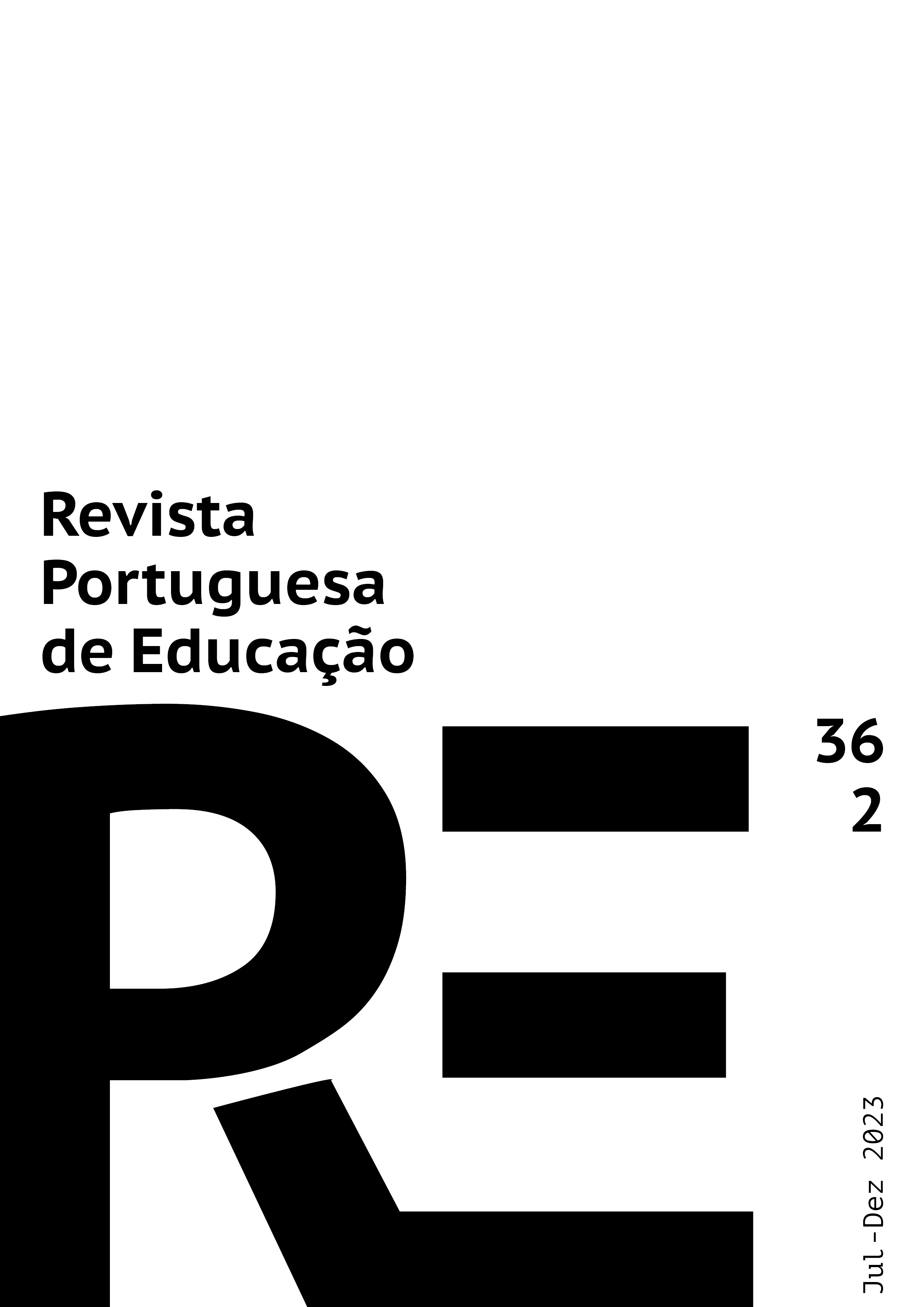Impact of pedagogical adaptation strategies, adopted in the context of the CoVid-19 pandemic, on nursing students
DOI:
https://doi.org/10.21814/rpe.24698Keywords:
Nursing students, Higher education institutions, COVID-19Abstract
The Covid-19 pandemic imposed changes to the normal functioning of the Portuguese Higher Education system, making it necessary to implement pedagogical adaptation strategies. In health courses, particularly in Nursing Degree courses, curricula have an expressive component of clinical practice, which had to be restructured. This study aimed to identify the impact of pedagogical adaptation strategies, adopted in the context of the Covid-19 pandemic, on nursing students, in a private health school, in northern Portugal. A study with a qualitative and exploratory approach was developed, using an intentional non-probabilistic sample, composed of 62 nursing students. The results demonstrate that the main curricular changes identified were distance classes and the cancellation / interruption of clinical teaching. The main difficulties felt were "Difficulty in attention and concentration" and "Adaptation / management of the new routine". As for the main adaptation strategies used by the students, “the optimization of daily routines” and the “increase / management of the autonomous study” stand out. The most experienced emotions and feelings were “anxiety”, “stress” and “discouragement / demotivation”.
Downloads
References
Ahrendt, D., Cabrita, J., Clerici, E., Hurley, J., Leončikas, T., Mascherini, M., Riso, S., & Sándor, E. (2020). Living, working and COVID-19. Eurofound. https://www.eurofound.europa.eu/publications/report/2020/living-working-and-covid-19
Aristovnik, A., Keržič, D., Ravšelj, D., Tomaževič, N., & Umek, L. (2020). Impacts of the COVID-19 Pandemic on Life of Higher Education Students: A Global Perspective. Sustainability, 12(20), e8438. https://doi.org/10.3390/su12208438
Bardin, L. (2006). Análise de conteúdo. Edições 70.
Benavente, A., Peixoto, P., & Gomes, R. M. (2020). Impacto da Covid-19 no sistema de ensino português. Observatório das Políticas de Educação e Formação. http://www.op-edu.eu
Bezerra, I. (2020). Estado da arte sobre o ensino de enfermagem e os desafios do uso de tecnologias remotas em época de pandemia do coronavírus. Journal of Human Growth and Development, 30(1), 141-147. http://doi.org/10.7322/jhgd.v30.10087
Cao, W., Fang, Z., Hou, G., Han, M., Xu, X., Dong, J., & Zheng, J. (2020). The psychological impact of the COVID-19 epidemic on college students in China. Psychiatry Research, 287, e112934. https://doi.org/10.1016/j.psychres.2020.112934
Huremović, D. (Ed.). (2019). Psychiatry of pandemics: A mental health response to infection outbreak. Springer. https://www.springer.com/gp/book/9783030153458
Kerimbayev, N. (2016). Virtual learning: possibilities and realization. Education and Information Technologies, 21, 1521-1533. http://dx.doi.org/10.1007/s10639-015-9397-1
Matos, F., & Costa, E. (2020). Aprendizagem e relação interpessoal no ensino à distância em Enfermagem: relato em tempo de pandemia. Revista Docência Do Ensino Superior, 10, e024719. https://doi.org/10.35699/2237-5864.2020.24719
Mussio, S. (2020). Reflexões sobre as modalidades de estudo na educação a distância: benefícios e limitações. Revista EDaPECI, 20(1), 119-129. http://dx.doi.org/10.29276/redapeci.2020.20.112187.119-129
Nadarajah, V. D., Er, H. M., & Lilley, P. (2020). Turning around a medical education conference: Otawa 2020 in the time of COVID-19. Medical Education, 54(8), 760-761. https://doi.org/10.1111/medu.14197
Ramalho, B. A. P., Leite, K. N. S., Caldas, M. L. L. S., Nunes, R. M. V., & Santos, J. S. F. (2020). A utilização das tecnologias como ferramentas para formação dos estudantes de enfermagem. Journal of Medicine and Health Promotion, 5(3), 78-89. http://jmhp.fiponline.edu.br/pdf/cliente=13-0da050f6f0fe46cfe21697d20b179f9f.pdf
Torres, A., Alves, L., & Costa, A. (2020). Educação e Saúde: reflexões sobre o contexto universitário em tempos de COVID-19. Scielo Preprints. http://dx.doi.org/10.1590/SciELOPreprints.640
Xavier, B., Camarneiro, A., Loureiro, L., Menino, E., Cunha-Oliveira, A., & Monteiro, A. (2020). Impacto da COVID-19 nas dinâmicas sociofamiliares e académicas dos estudantes de enfermagem em Portugal. Revista de Enfermagem Referência, 5(4), e20104. https://doi.org/10.12707/RV20104
Downloads
Published
How to Cite
Issue
Section
License
Copyright (c) 2023 Lia Raquel de Sousa, Fernanda Pombal, Clara Simões, Nuno Araújo, Filipe Fernandes, Maria José Freitas, Isabel Araújo

This work is licensed under a Creative Commons Attribution-ShareAlike 4.0 International License.
1. The authors preserve their authorship and grant the Portuguese Journal of Education the right to the first publication. The work is licensed under Creative Commons Attribution License that allows sharing the work with the acknowledgment of initial authorship and publication in this Journal.
2. The authors have the right to take additional contracts separately, for non-exclusive distribution of the published version of their work (e.g. to deposit in an institutional repository or as a book chapter), acknowledging the initial authorship and publication in this Journal.
3. The authors have the permission and are stimulated to post their work online (e.g. in an institutional repository or on their personal website). They can do this at any phase of the editorial process, as it may generate productive changes, as well as increase impact and article citation (see The Open Citation Project).
The work is licensed under Attribution-ShareAlike 4.0 International (CC BY-SA 4.0)




















